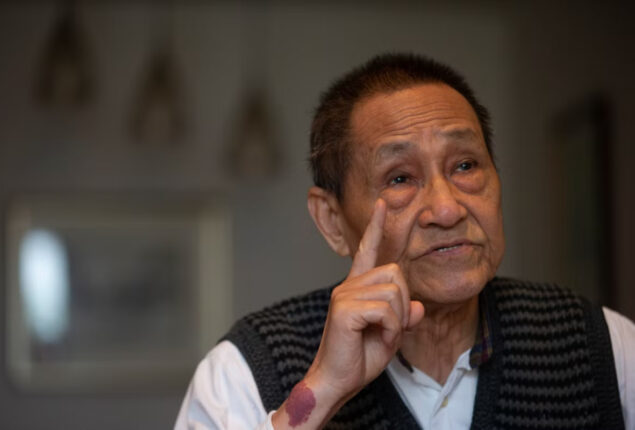Hong Kong police make multiple arrests as Tiananmen gatherings banned
Discussion of June 4, 1989, when China set tanks on protestors, is...

90-year-old political reformer Bao Tong in China passes away
The most senior Communist Party official detained in connection with the Tiananmen demonstrations that shook Beijing in 1989, Bao Tong, has passed away at the age of 90.
During pro-democracy demonstrations in the 1980s, he promoted political reform.
However, the Communist Party ousted Bao and imprisoned him for seven years after putting an end to the campaign.
The announcement has received no response in his home country, where the internet is strictly blocked, even as Chinese activists from all around the world grieve his demise.
In the years that followed, any reference of the massacre, whose precise toll is still unclear, as well as the historic demonstrations at Tiananmen practically vanished from the public record.
Bao’s name is still unreachable on Weibo, China’s tightly controlled equivalent of Twitter. The message on the screen states that “applicable legislation and regulations” prevent their display.
Few young Chinese are familiar with Bao because of the Communist Party’s ruthless crackdown on any subject relating to the 1980s protests or any other type of dissent.
But after his son Bao Pu announced his passing on Wednesday, saying that his father had passed away peacefully that morning in Beijing, the city he had called home for decades, condolences flooded in from all over the world.
Wang Dan, a student leader from the Tiananmen protests, hailed him on Twitter as a reformer and rebel who was crucial to China opening up. Although he is “against” the Chinese Communist Party, he wrote that he would still like to “express utmost respect” for former party officials like Bao who fought for change before eventually leaving.
Bao served as Zhao Ziyang’s top adviser in the 1980s. Zhao Ziyang currently serves as Xi Jinping’s successor as general secretary of the Communist Party. Zhao had been a prominent member of the party wing that supported reform.
Bao, who was born in the eastern Chinese province of Zhejiang in 1932, joined the Communist Party in 1949, the same year that it seized power on the Chinese mainland.
He worked his way up to become Zhao’s political secretary in the 1980s, then the general secretary. He worked as the party’s director of political reform and a member of the central committee.
Bao contributed to the creation of political and economic changes aimed at modernizing the power structures that had remained essentially intact since Mao Zedong’s passing in 1976.
He was one of the designers of the model of group leadership that the party later adopted to prevent the concentration of power in the hands of one person.
But as the pro-democracy demonstrations swelled and spread throughout more of China in 1989, the hardliners in the party started to worry more about their future. Ultimately, the protests came to a terrible end as the reformists lost.
Days prior to the incident on June 4, both Zhao and Bao’s careers abruptly came to an end. Both had expressed open sympathies with the demonstrators.
Zhao had already been demoted by that point and had lived the rest of his life under house arrest. 2005 saw his passing.
Bao was arrested in May 1989 and tried in 1992. He was found guilty of “revealing state secrets and counter-revolutionary propagandizing” – a charge he denied. He was expelled from the party and sentenced to seven years in prison.
He continued to be closely monitored by the state even after his release. Nevertheless, throughout that time he rose to prominence as one of China’s most vocal dissidents and opponents of the party. He pushed for the Chinese government to recognize the protests and what transpired on “June 4,” the day of the massacre in Tiananmen Square.
He had been active on Twitter since 2012 and had frequently discussed Chinese politics there.
In an interview with media in 2019 – on the 30th anniversary of the Tiananmen protests – Bao said he felt like he achieved “nothing” in his life. He said the political reform he had pushed for and the future he had hoped China would have had never materialized.
Jiang Zongcao, Bao’s wife, passed away in August of this year. She was 90 as well. Bao Pu and Bao Jian, the couple’s two children, were born.
Days before he died, Bao celebrated his 90th birthday. His son shared what he believed were his father’s last words to the world: “It doesn’t matter whether I reach 90, what’s important is the future we all should fight for… we should do what we are supposed to do, then we’ll realize our value, the value of our life.”
Catch all the China News, World News, Breaking News Event and Latest News Updates on The BOL News
Download The BOL News App to get the Daily News Update & Follow us on Google News.